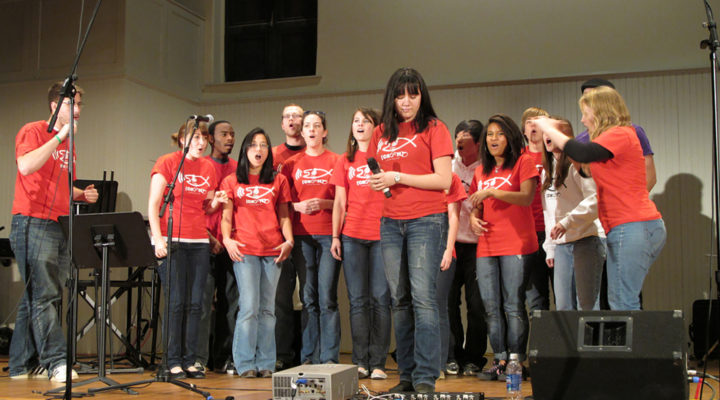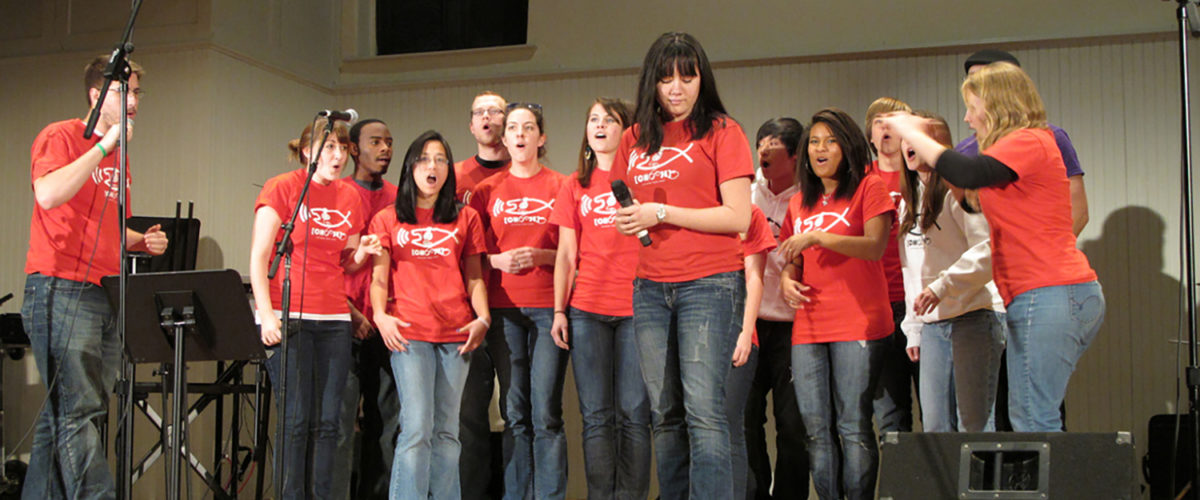Some people were surprised — and worried — to learn from an April poll that sermons are a much stronger draw to church attendance than music.
And it was worse than that for music lovers. The Gallup survey presented a list of motivations Americans give for going to worship, and music was solidly in last place.
But with a month to reflect on the discovery, Christian musician, songwriter and minister Kyle Matthews is not worried.
Far from it.
“I think it might be good news,” Matthews said during a recent FaithSoaring Churches Learning Community conference call.
“It indicates people are more hungry for substance than we give them credit for,” said Matthews, minister of worship arts at First Baptist Church in Greenville, S.C.
Matthews has had his eye on Christian music, and what churches want and don’t want, for a long time. For more than 20 years he was a recording artist and a songwriter for publishing companies in Nashville, Tenn. He’s won a Dove Award and other Christian songwriting achievements.
But Matthews said he left the industry for its focus on profit at the expense of providing theological education and Christian formation.
Through his current church ministry, he pursues worship songwriting that places liturgy above entertainment. But music that provides inspiring, substantive lyrics does not sell in a praise-and-worship world, Matthews said.
That’s why the Gallup poll’s findings are so interesting, he told other ministers on the conference call.
The Christian music industry, he said, is made up of people who are trying to serve a market.
“They are business people, not theologians, historians or music educators. They are business people.”
And what sells is music with shallow lyrics with little or no theological content. Matthews said he’s known songwriters and performers who are unfamiliar with Scripture.
As a result, music has become “wallpaper instead of furniture” in worship.
Rather than working to instruct Christians in the faith, contemporary worship music is filled with mantras and clichés designed to alter moods, Matthews said.
That kind of music comes and goes because it’s become disposable.
“I don’t think people are allowed to get to know church music well enough to interact with it.”
But the industry isn’t the problem, Matthews added.
“If the church would demand a different product, they would get a different product.”
It’s also the people in the pews. The industry is “responding to what the public is asking for.”
That has been praise music which is entertaining and happy, and avoids darkness and difficult concepts, he said.
“It can become a form of escapism rather than a form of encounter with God.”
It’s why the April Gallup poll could be good news. It may signal that people in the pews may want something more. That could be why sermons are at the top of the list, and contemporary Christian music, with its mantras and clichés, is at the bottom.
Otherwise, Matthews said, “I would hate to see the sermon become the only place where people think content can be derived.”



